Snapshot of Recent NSI Workshop‚ Nairobi‚ Kenya‚ May 2017
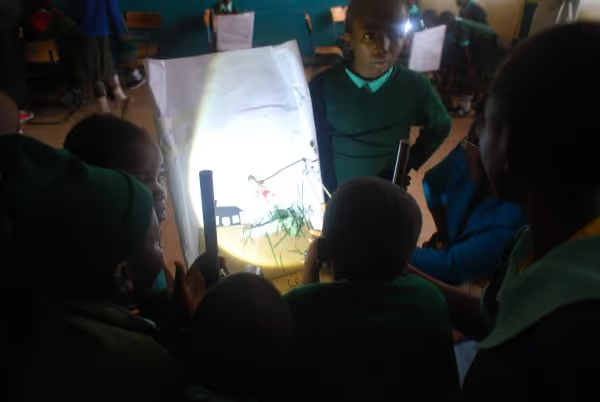
Kawangware is a huge Nairobi slum with innumerable pressures on resources we in the West take for granted. To introduce themselves to others on the Monday of this intense five-day puppet romp - that is the No Strings workshop - our participants make models of where they work; in this case, they are all primary school teachers or government officials of the five different schools in Kawangware.
They look like jolly places, crafted from coloured paper with leaves for trees scattered about, but the teachers are frank about the issues they reveal. In one school, there are 1,850 children, 24 teachers, and 14 toilets. Another school has 1,500 children and seven latrines. Another, 1,800 children, 23 trained teachers, and no running water. We see open defecation sites in the bushes by the playgrounds, open sewers by the school fences that fill streams children play in.
“I LOVE teaching,” one teachers say with intense pride, and without exception, because children value education so highly, and the impact on their lives is enormous. When we visit one of their schools on the Thursday, everyone is out playing and there’s an ordered, happy, thriving feel in the air.
We’re here to see how children respond to the NSI Time to Wash film and some of the activities our participants have worked on over the last three days.
They divide into four separate classes of children, while myself and colleagues Johnie McGlade and Lisa Buckley dot from room to room, getting a feel for responses. The film has children’s eyes out on stalks, mouths open. There are funny bits and they laugh spontaneously. Then Jesse, a blue hand puppet with rabbity ears, arrives in class. He’s got stomach ache and didn’t have time to watch the film carefully. He makes some careless statements designed to prompt discussion about its key messages - ‘ah, you can just wipe your hands on your ears, that’ll get rid of any germs’.
Our teachers do incredible jobs. These children speak fluent English for one thing. But we wonder if they can get past the temptation to teach and away from the choruses of “yeeessss, teacher!”. And then slowly but surely, everyone still a bit shy as the classes are all mixed up, a bit of pure magic comes about.
We spin round the classrooms and the teachers perform the shadow theatre shows they prepared, using a cardboard box and paper screen and cardboard puppets and scenery. Someone has a dream and are on their way to achieving it when it vanishes from their grasp because they, or someone close, becomes ill.
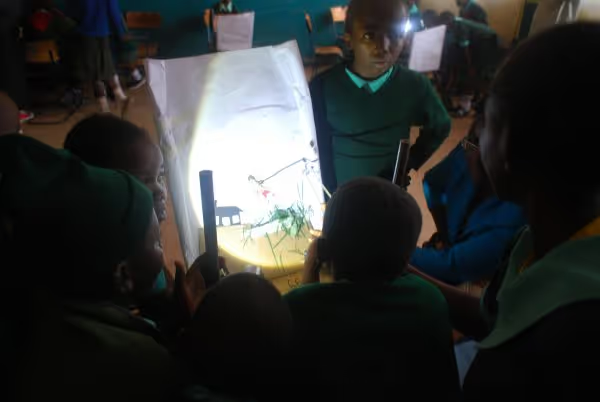
The children are split into small groups, and quietly discuss how the teachers’ story might have been different. What went wrong? Someone didn’t wash their hands was all, or drank untreated water. They make up new stories and draw and cut out paper silhouettes, attaching them to little rods. The teachers tape flipchart paper to the legs of upturned chairs, and the children rehearse on what make fabulous impromptu screens. Finally the children perform to others in their class. We are utterly, utterly spellbound.
The following day, some well known British actresses visit our workshop. One of our teacher groups performs their shadow show, then has a visitor trace the disease transmission route with a small green light, just as we see in our big production NSI film Time to Wash.
I show the visitors video footage of the Kawangware children taken yesterday, of how they responded to this shadow show with their own little performances. “How many months did they work on this?” one of them asks, clearly impressed. “An hour,” we respond proudly.
The Nairobi workshop follows two similar trainings delivered earlier this year by No Strings, one in Juba, South Sudan, and one in Dar es Salaam, Tanzania. It was supported by two dynamic participants trained in Tanzania and involved in the rollout with both mothers and schools groups in that country. All three have been delivered in partnership with Catholic Relief Services, CRS.
- Rosie Waller, Programmes Manager, No Strings International
Stay updated
Sign up for our newsletter to receive regular updates on resources, news, and insights like this. Don’t miss out on important information that can help you stay informed and engaged.
Related articles
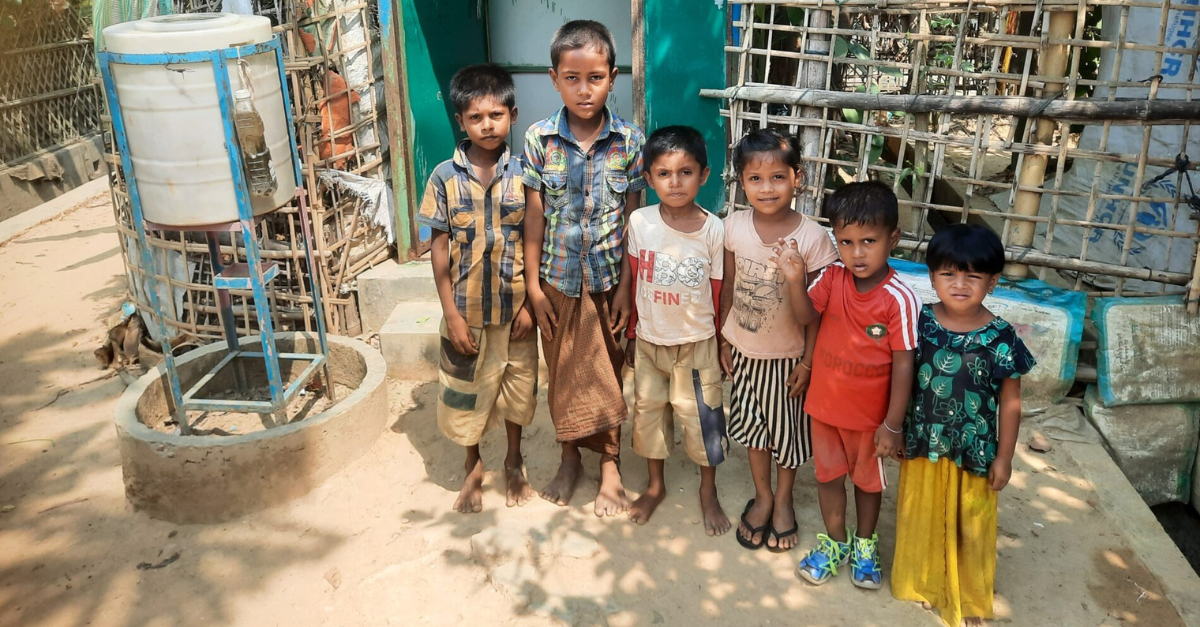
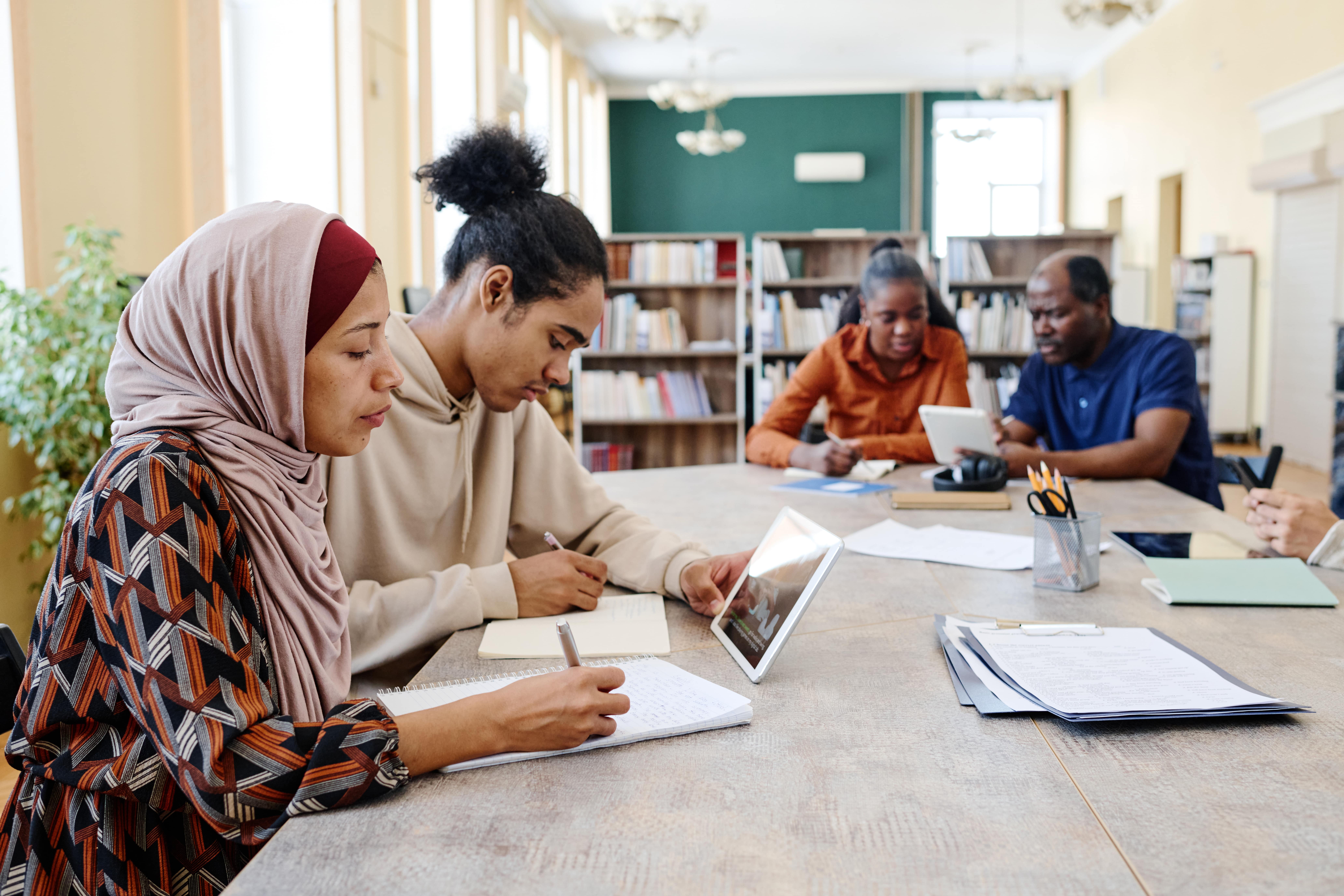
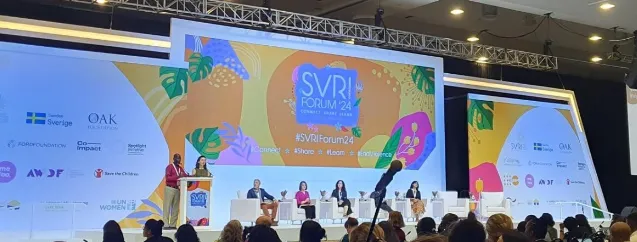
Explore Elrha
Learn more about our mission, the organisations we support, and the resources we provide to drive research and innovation in humanitarian response.